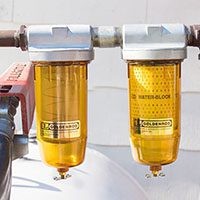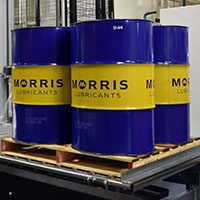
News
UKPIA welcomes FuelsEurope climate neutrality pathway
A FuelsEurope pathway describing how low-carbon liquid fuels could enable the transport sector to contribute to EU’s climate neutrality objective by 2050, has been welcomed by UKPIA. The ‘Clean Fuels for All’ pathway also shows that intermediate CO2 reductions of 100 million tonnes (Mt) are achievable by 2035.
John Cooper, director general of FuelsEurope, commented; “Today we are setting out an ambitious pathway for enabling transport to contribute to EU’s climate neutrality ambition by 2050, based on scale up of low-carbon-liquid fuels (LCLF) supply and use, across several transport sectors. With a clear societal and scientific case for far reaching climate action and taking into account the economic and social impacts of the coronavirus crisis, we respect that there will be no return to business as usual for the fuels industries.“
Partnerships for policy discussions
“With the focus increasingly turning to recovery and new investments, we believe now is the time to start policy discussions with EU and national policy makers, and customer stakeholders to design the enabling policy framework for the deployment of these essential low-carbon fuels.”
Low-carbon liquid fuels have a strategic role to play in the transition to a climate-neutral economy by 2050, particularly in sectors such as aviation, maritime and heavy-duty transport where no equivalent technological alternatives currently exist. These sustainable fuels are from non-petroleum origin with no or very limited, CO2 emissions during their production and use. First blended with conventional fuels, these low-carbon fuels will progressively replace fossil-based fuels.
John Cooper stressed; “Complementary to electrification and hydrogen technologies, low carbon liquid fuels will be essential throughout the energy transition and beyond 2050, ensuring security of supply, providing consumer choice and also building Europe’s industrial leadership.” He added; “We have worked very closely with our member companies over the last 3 years on the low carbon pathways for liquid fuels. This thinking has been the starting point for development of an extensive technology set by our industry which now has potential to be deployed across Europe to deliver low-carbon liquid fuels at substantial scale.”
A pathway aligned with the UKPIA vision
UKPIA voiced support for the FuelsEurope pathway which, it says, aligns closely with its own Future Vision Report, released in July 2019. The report outlined a belief that the downstream oil sector can be a force for positive change that can help all users of our products to reduce their carbon footprint.
‘Clean Fuels for All’ is the latest publication on the role of the downstream oil sector in a lower carbon world. The pathway follows on from FuelsEurope’s 2050 Vision and UKPIA’s own Future Vision, which sets out a potential blueprint for how proven and emerging technologies make the UK downstream oil sector a vital part of economic growth, while continuing to meet government net-zero ambitions.
UKPIA director general Stephen Marcos Jones, said; “Achieving the enormously challenging targets of reducing emissions to net-zero by 2050, will require a significant transformation of the UK and EU energy systems but the downstream oil sector and low carbon fuels can have a large part to play. FuelsEurope’s latest publication “Clean Fuels for All” and UKPIA’s Future Vision, continue to show the positive role in decarbonisation that our sector can have. However, it will require pragmatic and supportive policymaking to unlock this potential.”
Ambitious but achievable
The pathway could enable reducing emissions from transport in 2035 by up to 100Mt CO2/y and contributing to EU’s climate neutrality ambition by 2050 as John Cooper further outlined; “Evaluation of scenarios by Concawe describes first new plants to produce up to 30 MToe of low-carbon fuels by 2030, with an investment cost estimated at €30- €40 Billion. This would include several first-of-a-kind plants at industrial size for the newest technologies.
“By 2050, depending on the scenario and technology cost evolution, up to 150MToe of fuels could be produced with the cumulated investments in the range €400-€650 Billion.
“In the most ambitious scenario, climate neutrality could be achieved for all remaining liquid fuel in road transport, with a 50% reduction in carbon intensity for EU’s aviation and maritime sectors. All of these achievements would be fully consistent with the Clean Planet for All scenario.”
FuelsEurope is outlining a set of policy principles, which it believes is central to delivering the industry’s climate-neutral ambition, with these points serving as a start for discussion with policymakers, supply chain partners and customer groups.
John Cooper concluded; “This pathway is ambitious, but achievable with multi-stakeholder collaboration. These new technologies are exciting but capital-intensive and their development at scale will require investor confidence and political vision. Everyone must be on board. We call on EU policymakers to establish a high-level dialogue with all relevant stakeholders as soon as possible. For the fuels industry’s part, we are ready to take the lead.”
Click here to subscribe to Fuel Oil News, which next month features an in-depth analysis of the roles of alternative liquid fuels and hydrogen in relation to the UK government’s decarbonisation ambition.










